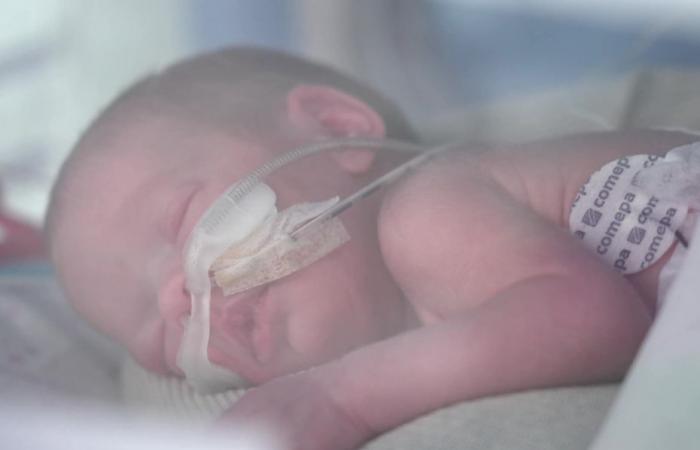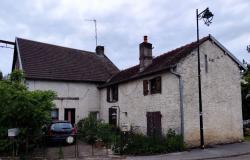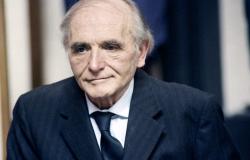The Dijon University Hospital appeals to donations of breast milk. A milk necessary for large premature infants who stay in its neonatalogy service.
Company
From daily life to major challenges, discover the subjects that make local society, such as justice, education, health and family.
France Télévisions uses your email address to send you the “Company” newsletter. You can unsubscribe at any time via the link at the bottom of this newsletter. Our Privacy Policy
It’s by words “Emergency breast milk donation! Lactarium reserves of Chu dijon bourgogne are at the bottom!“That the Dijon lactarium launches a call to strengthen its stocks of breast milk. Reserves estimated at 115 liters, maintained at level by a cohort of donors, but very little with regard to daily needs in” white gold “, estimated between 20 and 30 liters across the region.
For Professor Frédéric Huet, head of service and manager of the Dijon lactarium, there is an upsurge in the births of premature babies, that is to say children born before 36 weeks of pregnancy. These prematurers represent between 5 and 7 % of births in France. A “slow and constant” evolution figure for the past 20 years. According to Professor Frédéric Huet, 3 main factors explain this increase: the increasingly late age of mothers who carry a baby, the overweight increasing in the female population and the increase in the use of medically assisted procreation (PMA).
Prematurement is one thing, but great premature is another. When infants are born between 24 weeks and 32 weeks of pregnancy, they enter this category and need intensive care. For the youngest of them, barely viable, we even speak of “premature”. In all these cases, breast milk makes it possible to give them every chance of surviving an incubator and continuing their development under the supervision of the neonatalogy service. At this stage, babies are fed by probes linked to their stomach, a milk that accompanies the maturation of all their organs, as well as their cognitive and digestive functions.
This milk, essential to life, it must be collected and distributed it, is the whole reason for being of this lactarium. This structure, unique in Burgundy-Franche-Comté, collects human milk throughout the region and redistributes it to the neonatalogy services of the hospitals of Auxerre, Nevers, Chalon-sur-Saône and Besançon. Note that the Dijon CHU alone consumes 3/4 of these needs, due to the importance of its neonatality service.
But for a few years, fewer women have been thinking of sharing their breast milk. This is why the Dijon University Hospital now intends to communicate 2 times a year to encourage them to give.
-Call for donations of breast milk by the Dijon University Hospital • © Chu de Dijon
“It’s quite complexexplains Professor Frédéric Huet, Because women who come out of childbirth have so much to learn, so many things to manage … We communicate in maternities, on social networks, but the opportunity window is quite narrow, only 12 months, and all women cannot give. ” Added to that the number of premature children in net increase, we understand the difficulty encountered by the Dijon University Hospital, which aims to harvest up to 2500 liters of milk Each year.
Women must ideally have given birth less than 12 months ago, not having been transfused or having a large medical history. They should not smoke or drink alcohol to enter the protocol. But there is no age to give.
Everything can be done remotely to start the steps. The collection equipment is sent to your home. A prescription is also provided so that the volunteers get a breast pump.
Not all women can give as they would like, explains Nathalie Moscone, nursery nurse and coordinator of Lactarium de Dijon. “” Some encounters difficulties in pulling their milk, others produce in insufficient quantities. It is also necessary that each one has room in a freezer to store up to 3 liters of milk. Milk keeps its properties intact up to 4 months spent in the freezer “She tells us.
Once collected, breast milk is analyzed and pasteurized at the Dijon lactarium • © Alexandre Debray
Those who can give must draw their milk under rigorous hygiene conditions and call lactarium to program the collection. 3 collectors of the Dijon lactarium in turn crisscross the region to recover this breast milk to Haute-Marne. This milk will then be analyzed and pasteurized at the CHU and then benefit these infants who greatly need them.
Professor Frédéric Huet insists on understanding that this is a very important gesture on a medical level but also on a personal level. And to note how rewarding it is for a woman to be able to say herself “I helped a premature and thanks to me this baby is certainly very good “.
A gift that will remain anonymous, as is the gift of blood or the gift of organs, and which participates just as much in saving lives.








